As the construction industry grows, the demands for sustainability grow with it. Workers are adjusting to the shift to battery-powered, electric-run, or simulation-based tools, but there’s also a rise in the demand for sustainable building materials and methods—and with that comes timber. Timberlab, a Portland, Oregon-based company holistically integrating mass timber with other building systems, showcases how mass timber can be sustainable, functional, and aesthetically pleasing.
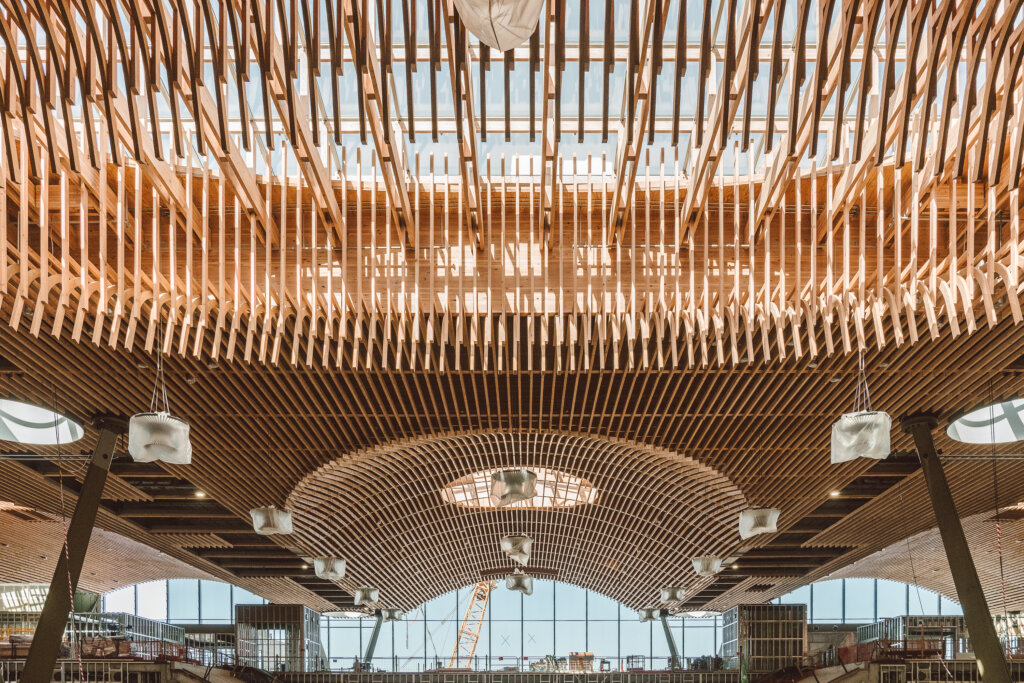
Timberlab is a wholesale building materials provider with a mission to boost the mainstream adoption of mass timber to benefit the Earth and all its inhabitants. While their first mass timber fabrication facility was launched in 2020, they have more than a century of contracting expertise under their belt.
Their Portland, Oregon facility offers custom Computer Numerical Control (CNC) fabrication to help grow the supply of mass timber products and increase their accessibility in the market. Their expertise also lies in integrating mass timber into existing building systems, smoothing that sustainable transition. Timberlab produces the materials and steers the design and construction ship along the way.
What’s so special about mass timber?
Timberlab’s project with the First Tech Federal Credit Union Headquarters delivered 4% faster construction and a 4% reduction in cost when estimated against concrete and steel, proving mass timber’s superiority in cost and efficiency over conventional materials.
Mass timber also has a far reduced carbon footprint compared to conventional construction materials. It requires little fossil fuels during the manufacturing process and less water than concrete or steel.
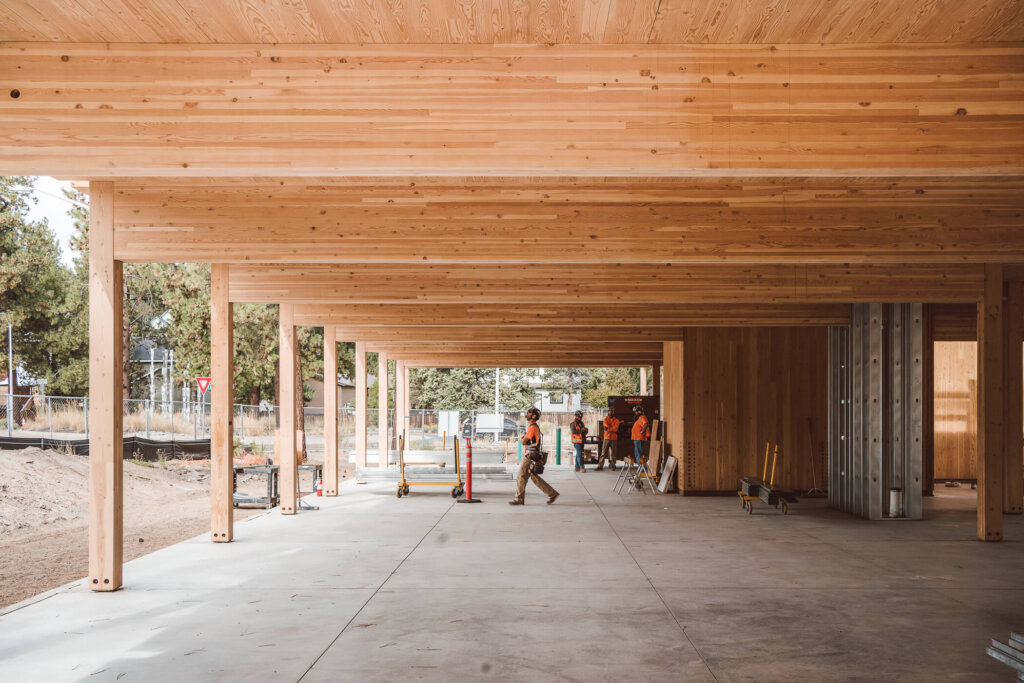
“Steel and concrete are carbon emitting materials. Trees naturally sequester carbon, absorbing it in the growth process. In terms of sustainability, if you wanted a net zero building, timber is pretty much the only way you can get there,” said Samuel Dicke, Manager of Client Development at Timberlab. “Aside from the much smaller carbon footprint, timber is naturally thermally insulative, so it does a great job of maintaining relative temperature levels, bringing the sustainability benefits beyond the initial construction process.”
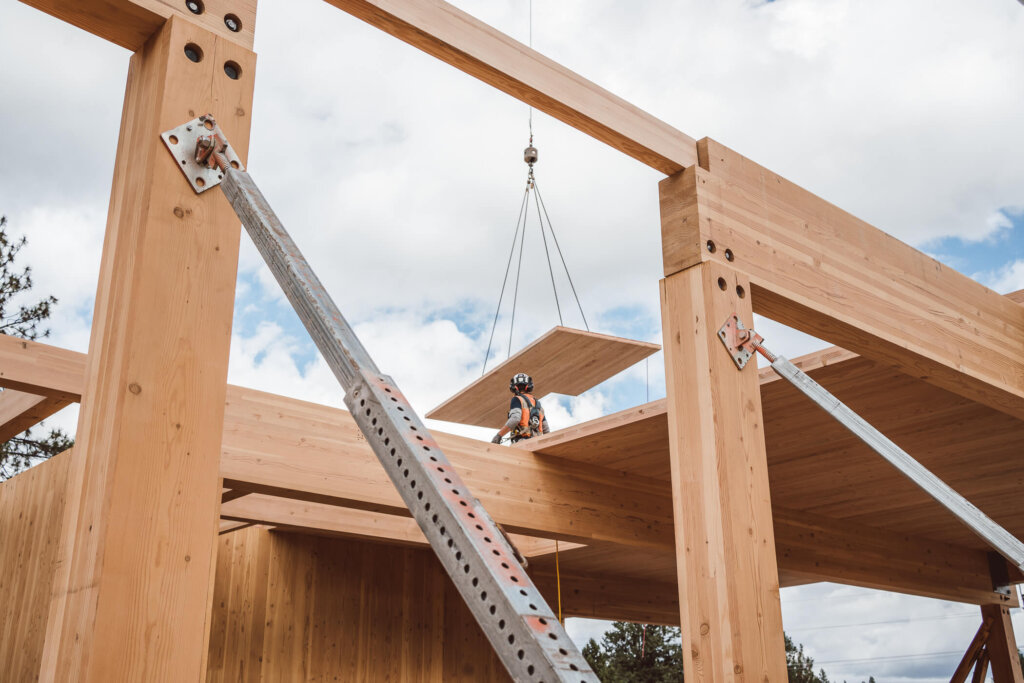
Apart from being more sustainable, mass timber also benefits well-being and productivity. Research finds that visual wood in a room lowers sympathetic nervous system activation, which controls the stress response in humans, helping to reduce stress and promote feelings of calmness. It’s also known to improve air quality, thermal comfort, and sound attenuation.
Timberlab’s secret ingredient: Glulam
Glued-laminated timber (glulam) offers more strength, sustainability, and versatility for builders. It was engineered as an alternative to conventional steel and concrete and is better suited for modern construction projects that require architectural strength and flexibility.
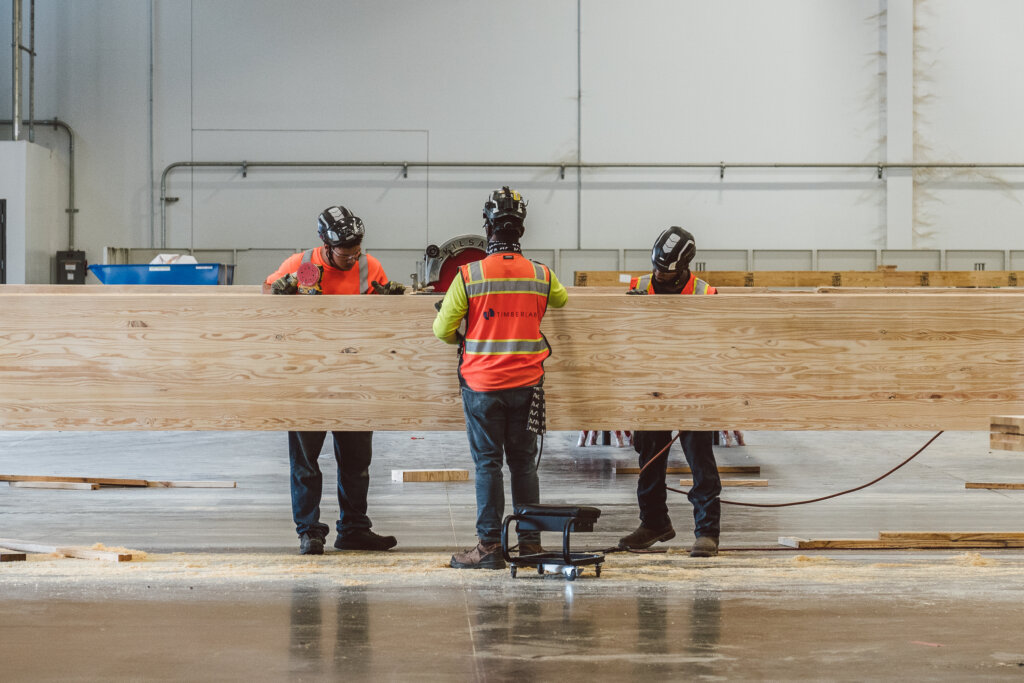
While not a material exclusive to Timberlab, they do provide some of the highest-quality glulam in the domestic U.S. building market. The company is dedicated to ensuring its projects utilize the highest-grade lumber in the country. Earlier this year, the team launched its operation to strive for a greater market supply and back regional timber economies.
What’s next for Timberlab
When we asked Dicke what was next for Timberlab, he said, “Our biggest step forward is the new CLT (cross-laminated timber) facility that breaks ground next month. It’s a huge push into manufacturing, and it’s the most high-tech facility we have so far, with all European machinery and equipment. It’s going to employ roughly 115 people at the height of its use. The team is very excited about it.”
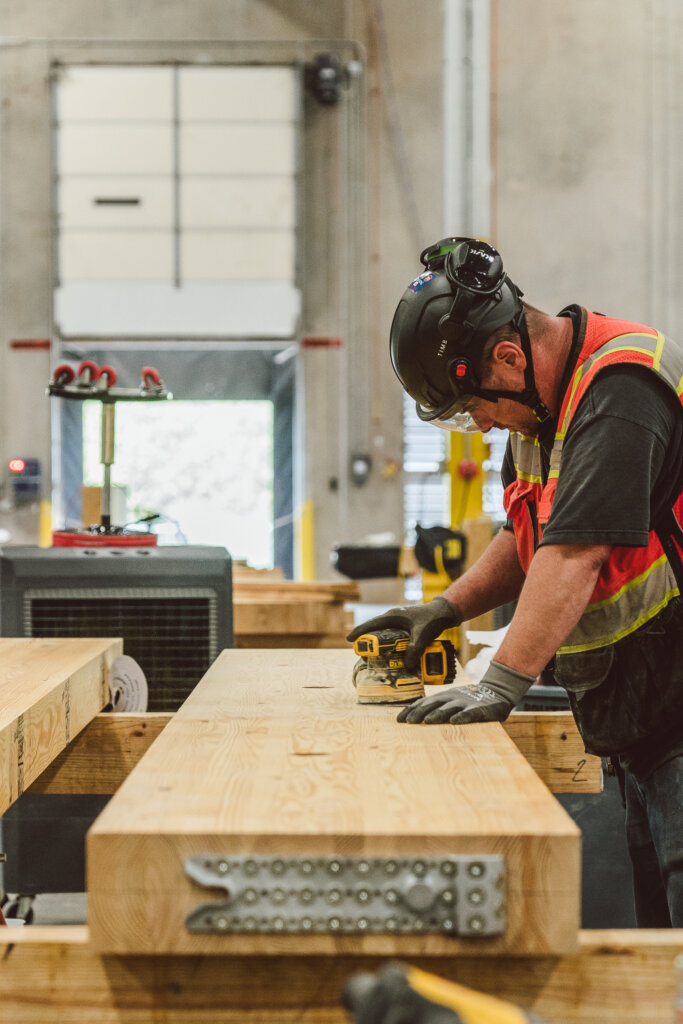
Timberlab offers several types of timber, including Douglas fir-larch, Alaskan cedar, southern pine, spruce pine fir, hemlock fir, and European spruce, to cater to various preferences and building styles. The company provides timber engineering, strategic procurement, digital construction, and mass timber installation for commercial, civic, residential, educational, and industrial projects.
For more information about how Timberlab is changing the face of sustainable construction, visit their website at https://timberlab.com/.
For more articles like this, follow us on social media and subscribe to our weekly newsletter.



